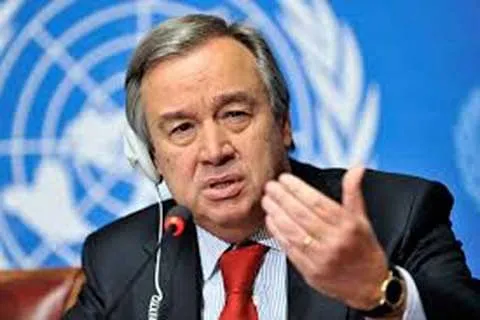New Delhi, Oct 17: United Nations peacekeeping chief Jean-Pierre Lacroix has warned that the UN’s peace operations face their most severe financial crisis in decades, following widespread non-payment of assessed contributions by Member States. Speaking at a high-level peacekeeping conference in New Delhi, attended by defence officials and diplomats from around the world, Lacroix described the situation as “more daunting than ever.”
“Unfortunately, we have no other option,” he told the gathering, referring to massive cuts ordered across all UN peacekeeping missions. “Our peacekeepers, your peacekeepers, protect people – they make the difference between life and death for hundreds of thousands of civilians.”
The crisis stems from a sharp shortfall in contributions that finance UN operations in conflict zones such as the Democratic Republic of the Congo, South Sudan, the Central African Republic, Lebanon, and the Golan Heights. As a result, Secretary-General António Guterres has directed all missions to reduce spending by 15 per cent, a move that will lead to a roughly 25 per cent reduction in uniformed and civilian staff due to compressed timelines.
“These cuts will touch every corner of our operations — from patrols and protection duties to logistics, air operations and humanitarian support,” Lacroix cautioned, as reported by UN News. The Department of Peace Operations (DPO) has also warned that fewer personnel in the field will mean reduced monitoring of ceasefires, fewer safe zones for civilians, and diminished support for relief operations.
Lacroix appealed to Member States to pay their dues “in full and on time”, urging renewed solidarity and collective advocacy to counter what he called “misinformation campaigns” against peacekeeping. “We need your understanding and support,” he said, “but we also need to work together to redress this situation.”
The UN General Assembly in July approved a $5.38 billion peacekeeping budget for 2025–26, slightly lower than last year’s $5.6 billion allocation. Yet, officials warned that implementation depends entirely on timely contributions. Despite accounting for less than 0.5 per cent of global military expenditure, peacekeeping remains one of the UN’s most visible and vital instruments for maintaining international peace and security.
UN Secretary-General Guterres, addressing troop and police-contributing countries last week, echoed Lacroix’s concerns. “Without predictable, adequate and timely financing, peacekeeping cannot deliver on its Security Council mandates,” he said.
Reflecting on the 80-year history of UN peace operations, which have deployed over two million ‘blue helmets’ and lost more than 4,400 personnel, Lacroix said the Organisation now stands at a “pivotal juncture.”
“The challenges ahead are real,” he said, “but so is our capacity to meet them — if we stay united in purpose, pragmatic in action, and unwavering in our commitment to peace.” The New Delhi conference, observers noted, came at a critical moment — bringing together key troop-contributing nations, including India, which is among the largest contributors of UN peacekeeping forces. The meeting underscored both the global reliance on peacekeeping missions and the urgent need to sustain their funding and effectiveness amid growing global instability.








